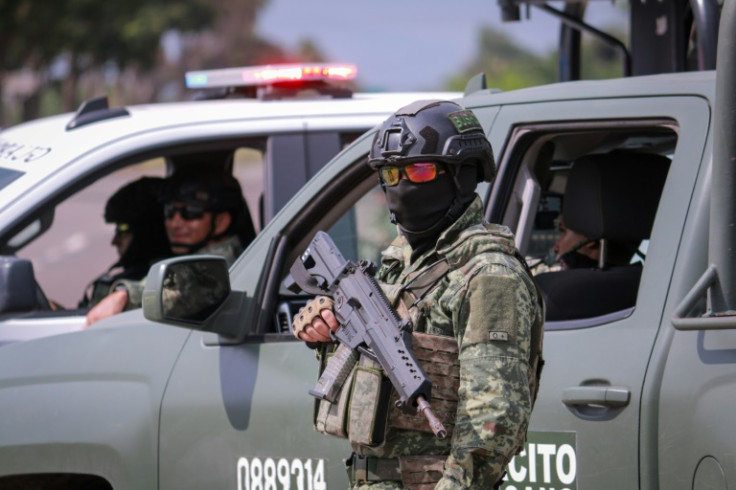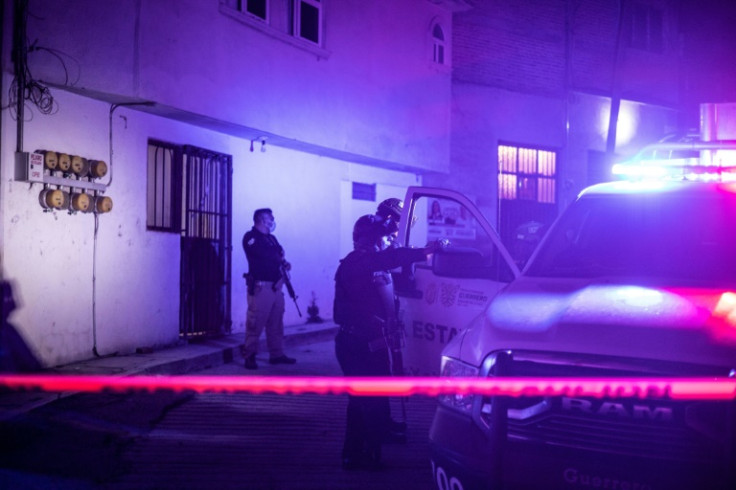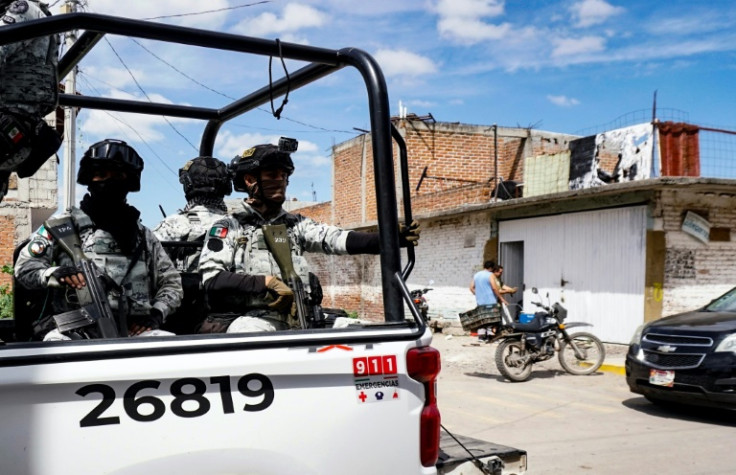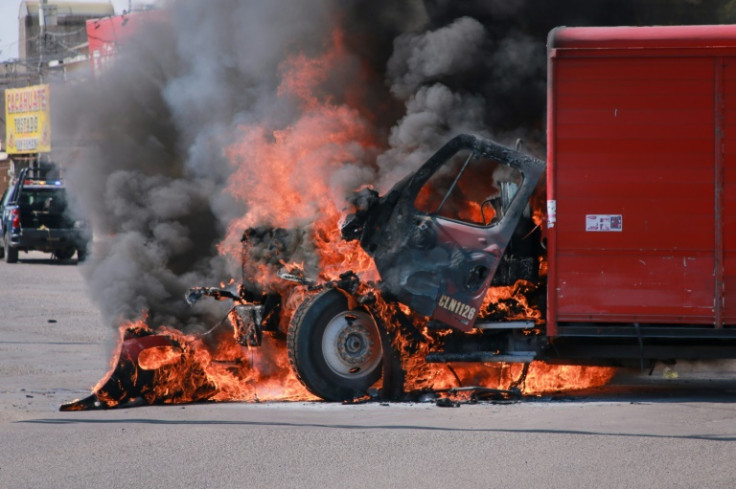Drugs, People Smuggling At Heart Of Mexico's Raging Violence

Mexico's new president, Claudia Sheinbaum, will present a national security plan on Tuesday aimed at combating around 30,000 murders a year, many of them linked to drug and human smuggling.
Sheinbaum, the first woman to lead the Latin American nation, will unveil her strategy amid shock over the murder and reported beheading of a city mayor in Guerrero state just days after taking office.
Guerrero, located on Mexico's southern Pacific coast, is one of six out of 32 states that account for almost half of the country's homicides.
Cartel-related violence is concentrated in or along drug trafficking routes, borders and ports of entry for cocaine from Colombia as well as ingredients for fentanyl from China, in addition to avocado and lime-producing regions.
On these shifting front lines, the country's two main drug gangs -- the Sinaloa and Jalisco New Generation cartels, which are among the world's most powerful criminal organizations -- wage ultra-violent turf battles and forcibly recruit members.
Sometimes rival factions within a cartel also go to war, as seen in the Sinaloa Cartel's northwestern heartland in recent weeks.
Instability has thrown up an immediate and daunting challenge for Sheinbaum.
In addition to the murder of Chilpancingo mayor Alejandro Arcos on Sunday, a month of violence in Sinaloa has left more than 150 people dead, while a spate of murders has shaken the central state of Guanajuato.
The industrial hub, roughly the size of Belgium, is home to multinational corporations such as General Motors, Mazda and Honda.
Guanajuato is also the country's most violent state.
The latest spike in bloodshed is due to a "counter-offensive" by the Sinaloa Cartel and its allies against Jalisco New Generation, which dominates the region, security expert David Saucedo said.
Violence has also escalated in Chiapas state, located on Mexico's southern border, described by the InSight Crime think tank as "a major smuggling hub of both drugs and migrants."
There, violence has coincided with the Jalisco New Generation's incursion into areas that were once strongholds of the Sinaloa Cartel, it said.
In Guerrero, several gangs fight for control of routes used to bring in drugs by sea.
In the north, violence linked to drug and migrant smuggling into the United States makes border cities such as Tijuana, Ciudad Juarez and Reynosa among the world's most dangerous.
The Sinaloa and Jalisco New Generation cartels "are at the heart" of a synthetic drugs crisis in the United States, according to the US Drug Enforcement Administration (DEA).
The two cartels are "global criminal enterprises" that source precursor chemicals from China, operate "clandestine labs" in Mexico, and use their "vast distribution networks to transport the drugs into the United States," it says.
The highly lucrative fentanyl trade has added to, or eclipsed, the cartels' traditional activities, such as cocaine trafficking from Colombia and poppy cultivation for heroin production.
Throughout their history, the gangs have been able to profit from the corruption of security officials.
Genaro Garcia Luna, a former public security minister, was convicted in the United States of receiving vast sums of money to allow the Sinaloa Cartel to smuggle tons of cocaine.
The violence has also been fueled by the fragmentation of the cartels since former president Felipe Calderon deployed the military against cartels in 2006, with the support of the United States.
According to press leaks, Sheinbaum's "100-day security strategy" will take aim at the 10 most dangerous cities in the country, as well as Chiapas and criminals who extort lime producers.
The former Mexico City mayor has pledged to strengthen the National Guard as well as intelligence agencies, and to improve coordination with police and prosecutors.
"Sheinbaum will likely be data-driven and technocratic in her approach to this vexing problem and will try to improve the effectiveness of the police," Michael Shifter, an expert at the Inter-American Dialogue think tank in Washington, told AFP.
But according to security expert Carlos Perez Ricart, an increased deployment of police or the military risks being undermined by the inaction of authorities who are supposed to ensure justice is served.
"We are facing a problem of security but above all of justice," he added.



© Copyright AFP 2025. All rights reserved.





















